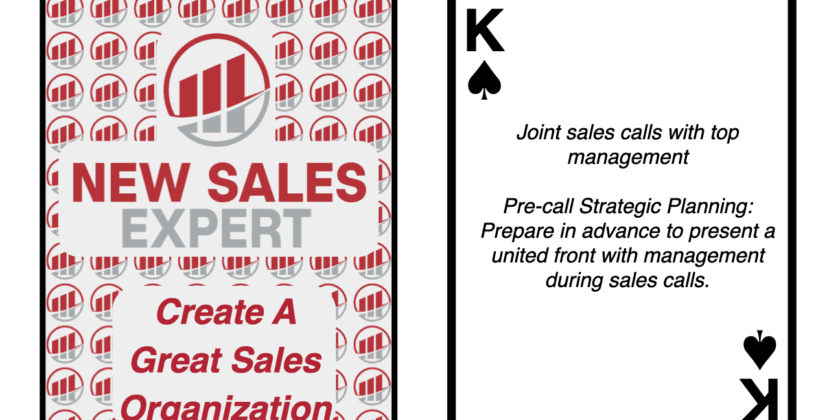Harmonizing Sales and Management: A Prelude to Success
The intricate dance of a joint sales call, where the sales team and top management come together, can be likened to a finely tuned orchestra. Each member plays a distinct part, but harmony is only achieved when everyone is attuned to the same melody. As such, aligning the sales strategy with the expectations of top management is not just beneficial—it’s essential. Dissonance here can lead to a muddled message, undercutting the credibility your team brings to the table. Pre-call discussions are vital, ensuring that the sales narrative is cohesive and that everyone is equipped to sing from the same hymn sheet.
A pivotal aspect of preparing for a joint sales call is delineating the roles and responsibilities of each participant. This orchestration involves deciding who will spearhead the conversation, manage specific inquiries, and at what juncture management should step in to underscore critical points or provide reassurance. Will management act as a deal closer, an influencer, or a validator? Clarifying these roles in advance prevents the awkwardness and missteps derailing a call. It’s about creating a seamless interaction where each participant knows their cue, ensuring the call progresses with the grace and precision of a well-rehearsed performance.
Setting the Stage: Defining Meeting Objectives
Identifying the objectives of the call is like setting the destination for a journey. It guides the direction of the conversation, providing a roadmap for all involved. These objectives could be as varied as addressing client-specific concerns, advancing the sales process, or finalizing a deal. By establishing these goals upfront, you ensure that the call doesn’t devolve into a meandering dialogue but remains a focused and purposeful exchange.
Preparing an agenda for the call is analogous to writing a script for a play. It outlines the act sequence, prioritizing key discussion points and time-management effectively. This agenda should not be rigid but adaptable, allowing room to navigate unforeseen queries or shifts in discussion. Sharing this agenda with the client beforehand exhibits professionalism and enables them to prepare, setting the stage for a more engaged and productive interaction.
Anticipating the Unexpected: Preparing for Objections
A well-prepared team is one that has anticipated potential objections and crafted compelling counterarguments. In a scenario where top management is involved, the stakes are heightened. An unconvincing response to an objection can squander the unique opportunity to leverage the authority and credibility of the management team. Thus, a thorough rehearsal of potential objections and responses is critical to ensuring that the team is ready to turn challenges into opportunities for persuasion.
In-depth knowledge of the client forms the bedrock of an effective sales strategy. Before the call, compile a comprehensive profile of the client, encompassing industry trends, historical interactions, and key decision-makers. This information equips both the sales team and management with valuable insights, enabling them to tailor their approach and contribute meaningfully to the conversation.
Actionable Strategy: The Power of a Shared Agenda
A shared agenda is the cornerstone of a successful joint sales call. It’s not just a checklist of topics but a strategic tool that aligns the team’s collective effort. Developing this agenda collaboratively ensures that it reflects the collective wisdom and insights of the group. Once finalized, circulating it among all participants solidifies understanding and buy-in, minimizing confusion and reinforcing the agreed-upon roles and strategies.
A joint sales call with management is a high-stakes, high-reward scenario. It requires meticulous planning, clear communication, and a shared vision. By harmonizing the strategies of the sales team with management expectations, defining clear roles, setting focused objectives, preparing a structured agenda, anticipating objections, and understanding the client in-depth, you set the stage for not just a successful call but a demonstration of your organization’s cohesion and competence. This level of preparation and coordination is what transforms average sales teams into exceptional ones, paving the way for sustained success and growth.




